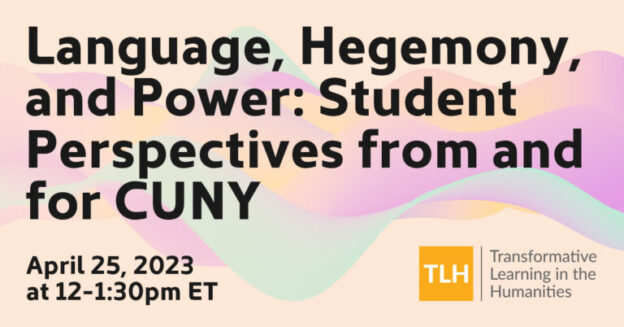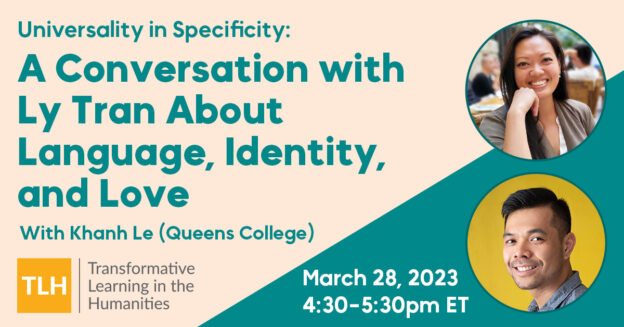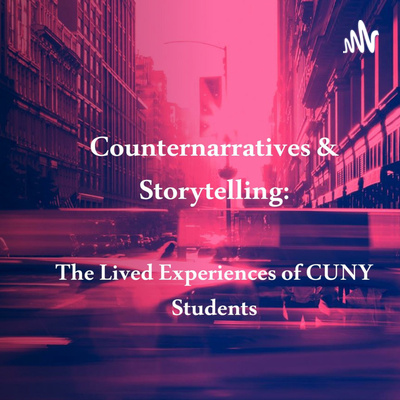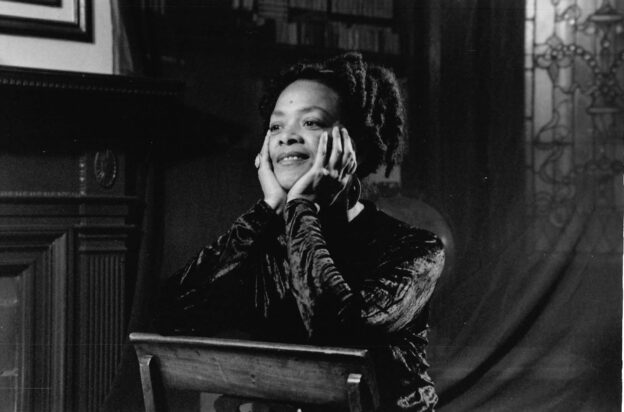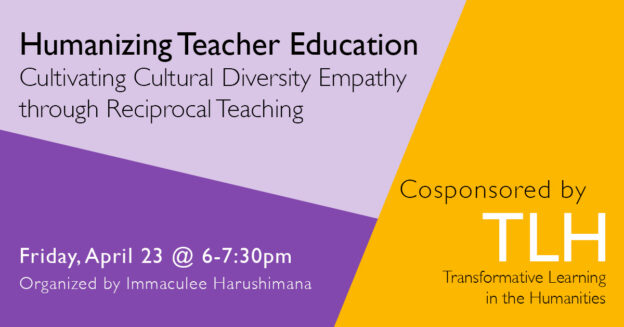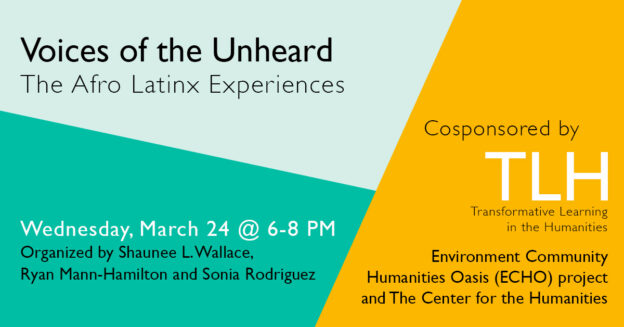Our virtual panel was designed as a safe space for students across CUNY to share their experiences using language in their academic careers. Students reflected on the languages they speak and blend together, what the expectations for expression and communication are in the classroom setting, and how they navigate linguistic standards that may or may not apply to them.
Students also shared ideas on how to support and embrace linguistic diversity and creativity with language among CUNY students. A question which sparked debate was that of ‘standard’ English: is it really a pertinent concept, and why? While students expressed their respect for such a concept – in appropriate contexts – they also called for more respect of their linguistic diversity and their own ‘Englishes,’ in light of Jamila Lyiscott poem ‘3 ways to speak English’. Continue reading
